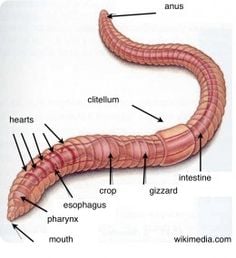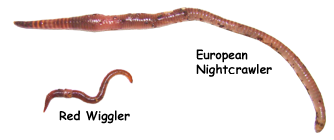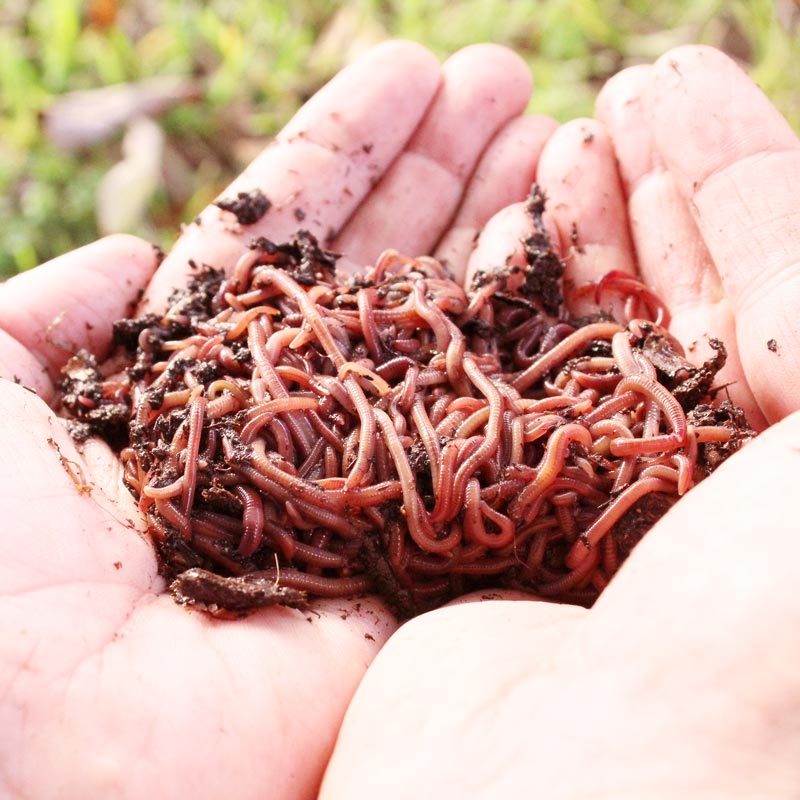Red Wiggler Worms - Boost Your Soil Wellness Normally
Red Wiggler Worms - Boost Your Soil Wellness Normally
Blog Article
Red Wiggler Worms Demystified: Unlocking the Secrets of Vermiculture for Greener Living and Nutrient-Rich Dirt
In the world of sustainable practices for enriching dirt high quality and advertising eco-conscious living, red wiggler worms play a critical yet often ignored function. These humble creatures have the amazing capability to change organic waste into nutrient-rich spreadings that act as a potent natural plant food. By delving into the world of vermiculture, one can uncover a variety of advantages that extend far past traditional composting methods. Understanding the details of looking after these worms, maximizing their atmosphere, and utilizing their castings can bring about a greener way of living and healthier dirt for plants to thrive.
The Role of Red Wiggler Worms
Red Wiggler worms play a vital role in composting systems by effectively breaking down natural matter right into nutrient-rich spreadings. These starved eaters consume a selection of organic materials, such as kitchen scraps, yard waste, and paper items. As they feed, the worms' digestive processes break down the natural issue into a fine, dark, and nutrient-dense material referred to as worm spreadings or vermicompost.
The castings produced by Red Wiggler worms are very advantageous for soil health and plant growth. They are rich in essential nutrients like potassium, phosphorus, and nitrogen, which are vital for supporting healthy and balanced plant advancement. Additionally, worm spreadings consist of helpful microorganisms and enzymes that aid boost soil framework, rise water retention, and enhance nutrient uptake by plants.
Advantages of Vermicomposting

In addition, vermicompost, the nutrient-rich output of vermicomposting, works as an excellent natural fertilizer and dirt conditioner. It improves soil framework, improves dirt oygenation, and boosts soil moisture retention. These homes add to much healthier plants with stronger root systems and better resistance to parasites and illness. Vermicompost additionally enriches the dirt with crucial nutrients like phosphorus, nitrogen, and potassium, advertising plant development and total soil fertility.
In addition, vermicomposting supports sustainable gardening methods by providing a all-natural and chemical-free option to synthetic plant foods. Red Wiggler Worms. This eco-friendly strategy not just improves the soil but also helps reduce reliance on hazardous chemicals, advertising a greener and much more lasting method of horticulture
Establishing Up a Worm Bin
When establishing a worm bin for vermicomposting, appropriate setup is essential to make certain the success of the composting procedure. The first step in establishing up a worm container is picking an ideal container.
After including the bed linens, present the red wiggler worms to the bin. It is recommended to begin with a handful of worms and slowly increase as they multiply. The worms ought to after that be supplied with food scraps such as fruit and veggie peels, coffee premises, and eggshells. It is necessary to stay clear of adding meat, milk, oily, or salty foods to stop drawing in parasites and developing unpleasant odors.
Regularly monitor the moisture levels and temperature level in the worm container to ensure optimal problems for the worms. With proper check here arrangement and upkeep, the worm bin will properly convert organic waste into nutrient-rich garden compost for your plants and yard.
Harvesting Worm Spreadings
To effectively collect nutrient-rich worm castings from your vermicomposting system, an organized harvesting approach is vital. When it comes time to collect the worm spreadings, there are a few crucial actions to comply with to make certain an effective procedure. Quit adding fresh food scraps to one side of the worm container for a pair of weeks prior to harvesting. This encourages the worms to migrate to the side with fresh bed linens and food, making it easier to scoop out the castings from the various other side.

Troubleshooting Common Issues
Recognizing and addressing usual challenges that may emerge throughout the vermicomposting procedure is essential for maintaining a effective and healthy and balanced worm container. Adding excess food scraps can lead to a buildup of dampness and acidity in the worm container, potentially hurting the worms. An additional issue is unpleasant odors emanating from the worm container.
Additionally, if the worm population is decreasing or the worms appear undesirable, maybe Going Here as a result of ecological stressors such as severe temperature levels or pH levels. Keeping track of these variables and making needed changes is here are the findings essential for the health of the worms. By repairing these usual problems promptly, vermicomposters can make certain a successful and smooth vermicomposting procedure while keeping a thriving worm population.

Conclusion
In final thought, red wiggler worms play a critical role in vermiculture by damaging down natural issue into nutrient-rich soil. Establishing up a worm bin is vital for successful vermiculture, and collecting worm spreadings provides beneficial garden compost for gardening.
As they feed, the worms' digestion procedures damage down the organic matter right into a fine, dark, and nutrient-dense product known as worm castings or vermicompost.
The castings created by Red Wiggler worms are very advantageous for dirt health and wellness and plant development. Adding excess food scraps can lead to an accumulation of moisture and level of acidity in the worm bin, potentially damaging the worms.In addition, if the worm population is declining or the worms appear unhealthy, it could be due to environmental stress factors such as extreme temperatures or pH degrees. Setting up a worm container is important for effective vermiculture, and collecting worm spreadings offers valuable garden compost for horticulture.
Report this page